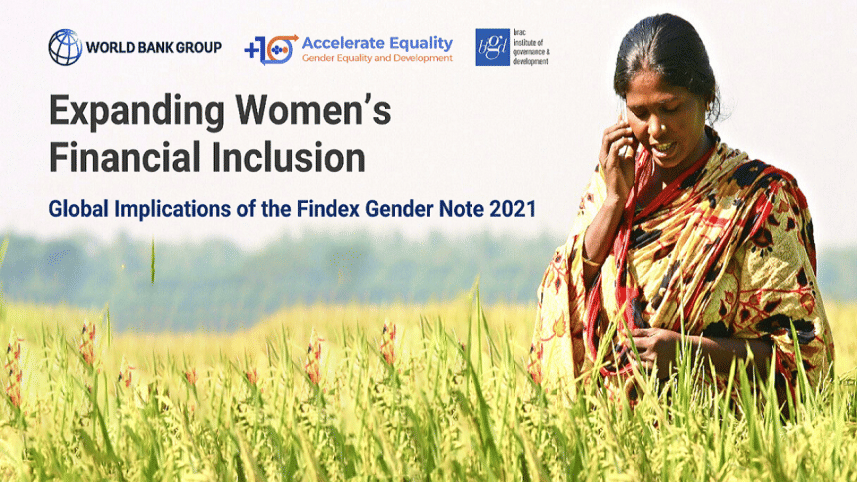Women’s access to financial services rises

The gap in access to financial services between men and women dropped to 4 percentage points for the first time in the past decade, according to the Global Findex Database 2021.
In developing economies, the gap is somewhat larger at 6 percentage points where 74 per cent of men now have an account, compared to 68 per cent of women.
World Bank Lead Economist and Global Findex founder Leora Klapper presented the global findings of the Findex Gender Note 2021 in a webinar.
The Brac Institute of Governance and Development (BIGD) in partnership with the World Bank's Development Research Group and the World Bank Group's yearlong Gender Equality and Development +10: Accelerate Equality initiative organised the webinar titled "Expanding women's financial inclusion: global implications of the Findex Gender Note 2021" on December 14.
"We have now reached the highest level of women included in the formal financial system ever," Mary Ellen Iskenderian, president and CEO of Women's World Banking, said in her speech, drawing data from the Findex Gender Note 2021.
"But it is important to remember that we need to put up efforts to provide relevant products that engage women clients and keep them in the system" she said.
"We must remain attentive to building greater trust, greater awareness and relevance between financial service providers and women they are supposed to serve."
Leora Klapper, lead economist in the Development Research Group at the World Bank and founder of Global Findex database, gave an overview of the Findex Gender Note 2021.
"Financial inclusion matters for development. Expanding financial inclusion for women will encourage women to save, and help them make and receive digital payments to build their own credit history. At the same time, it will smooth their consumption and spending process, and help strengthen their family's financial resilience," she said.
The webinar also featured BIGD WEE-DiFine studies, which explore the intersection of digital financial services and women's economic empowerment in the global south.
Zaki Wahhaj from University of Kent, Canterbury, Caroline Wainana from African Population and Health Research Center, Munshi Sulaiman from Save the Children International, Lopita Huq from BIGD, and Xavier Giné from The World Bank Bank described the motivating principles behind their studies.
The presentations were followed by a panel discussion featuring leading international and Bangladesh based financial practitioners.
Momina Aijazuddin, regional industry head of MCT financial sector at the International Finance Corporation, also joined the panel discussion.
She said: "To encourage financial inclusion of women, we need to move away from product-centric design, and adopt an approach that is more customer-centric, one that focuses on the needs of women clients. It is highly important that we work collaboratively on designing more gender inclusive financial products."
The event was moderated by Imran Matin, executive director of BIGD.



 For all latest news, follow The Daily Star's Google News channel.
For all latest news, follow The Daily Star's Google News channel.
Comments